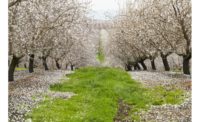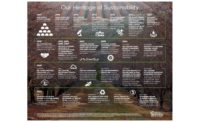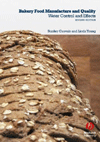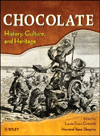Almond Board of California donates $2.5M for water efficiency research
During the past 20 years, almond farming has reduced water usage by 33 percent.

With the ongoing drought in California, The Almond Board of California (ABC) wants to do its part to help.
The organization is donating $2.5 million to third-party researchers in hopes of improving almond farming and sustainability.
As 80 percent of the world’s almonds are grown in California, the drought has created a new sense of urgency in finding better ways to grow almonds for the sake of everyone affected.
Traditionally, California has a wonderful climate and its soil offers ideal growing conditions. In fact, in the 2013 and 2014 growing season, California shipped 1.9 billion pounds of almonds — 65 percent of which were exported and 35 percent of which remained in the U.S.
Moreover, during the past 20 years, water usage in almond farming has decreased by 33 percent.
Nonetheless, water remains the biggest challenge.
Richard Waycott, ABC’s ceo, stresses that the Board’s focus is on the future, solutions, and the state’s well-being.
“We very much believe in challenging our industry to figure out how to do more with less,” says Waycott, adding that in the past, research has led to innovative approaches to almond farming. “One of our proudest achievements has been our use of water in production.”
Thanks to drip and micro irrigation, now used in 70 percent of almond orchards, growers can increase their yield while limiting water usage.
Research has also led to more strategic planning and fertilizing.
Yet, there’s more work to be done. With the $2.5 million budget, third party researchers, such as the University of California’s agricultural science division and the USDA’s Agricultural Research Service, can hopefully spur even more innovation.
“We have great resources and we’re well funded and we hope to play a key role in finding solutions for the California drought,” says Bob Curtis, ABC’s associate director of agricultural affairs.
Curtis stresses that ABC is bullish about spreading its knowledge to all areas of the industry. Some of the 56 projects that were approved for funding include the following:
- Thirteen water projects. Since 1982, ABC has funded 91 irrigation research projects. That research has led to improvements in farming practices including advanced irrigation systems and irrigation decision support tools, among others.
- Nine honey bee health projects. Since 1995, ABC has invested more than any other crop group on research related to honey bee health. This includes finding solutions to Varroa mite and other honey bee pest and disease management; nutrition and honey bee forage; lack of honey bee genetic diversity; impact of pesticides; and technical assistance for beekeepers.
- Continued support for the California Almond Sustainability Program (CASP). Topics covered by the program include irrigation management, nutrient management, air quality, water quality, energy efficiency, ecosystem, financial management and pest management.
- Research into other issues like air quality, pest and disease management.
The organization is also spearheading the California Almond Sustainability Program (CASP).
It currently involves 1,380 voluntary participants who assess their practices, and, in turn, these assessments are studied by the ABC to guide research and educate buyers, regulators and the public. It also provides a chance for growers to reflect on their practices. Since its inception in 2009, participants have represented more than 375,000 acres.
Looking for a reprint of this article?
From high-res PDFs to custom plaques, order your copy today!










